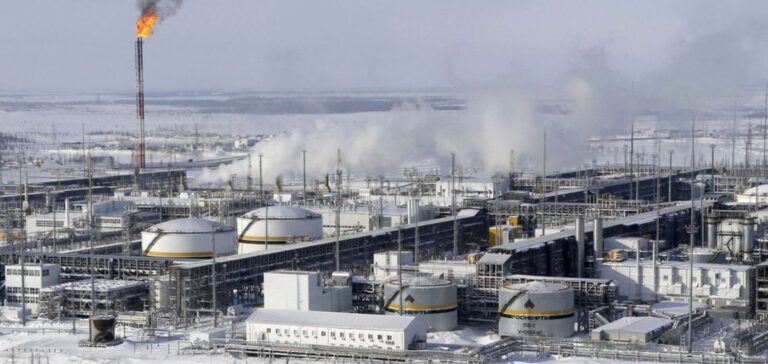Russia said it has “no doubt” to find in the coming months new countries that will buy its oil, despite the establishment the day before by the West of a cap on the price of Russian crude.
“I have no doubt that there will be buyers for our oil products,” Russian Deputy Foreign Minister Sergei Ryabkov was quoted as saying by Russian news agencies.
The announcement on Friday by the EU, the G7 and Australia to cap the price of Russian oil exports at $60 will “fragment” the global economy “in many areas”, he said.
The stated objective of this new Western sanction is to drain part of the colossal revenues that Moscow derives from the sale of its hydrocarbons and thus reduce its ability to finance its military intervention in Ukraine.
The mechanism adopted provides that only Russian oil sold at a price of $60 per barrel or less will continue to be delivered.
Beyond that, it will be forbidden for companies based in the EU, G7 countries and Australia to provide the services that enable maritime transport (trading, freight, insurance, ship owners, etc.).
In fact, the G7 countries provide the insurance services for 90% of the world’s cargoes and the EU is a major player in sea freight, hence their ability to pass on this cap to the majority of Russia’s customers around the world, a credible deterrent.
On the same subject, the Russian Deputy Prime Minister in charge of Energy, Alexander Novak, who has already warned that Moscow would no longer deliver oil to countries that would adopt the cap mechanism, repeated that it would “lead to an even greater increase in prices” on world markets, against a backdrop of already high inflation in many countries.
According to Mr. Novak, the price ceiling introduced by the West “is not a tragedy” for Russia despite “supply chains to change” and “an uncertain situation”.
“Commercial enterprises will find mechanisms among themselves to sell the products concerned,” he assured, although he again said “not to exclude” a decrease in Russian oil deliveries in the coming months in the face of these “uncertainties.”





















